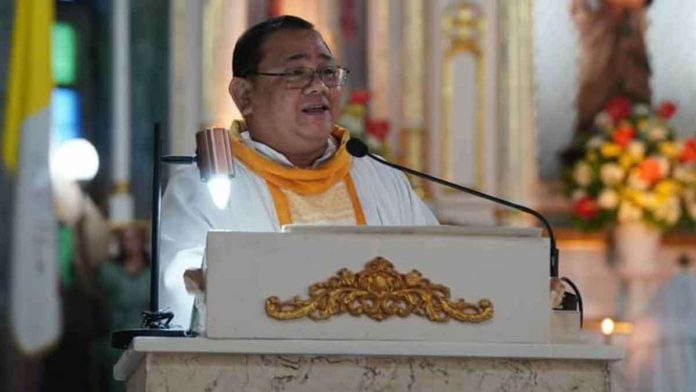
BY IME SORNITO and MA. THERESA LADIAO
ILOILO City – The proposed “Absolute Divorce Act” has sparked mixed reactions within the local religious sector.
While the Catholic Church firmly opposes the bill, emphasizing the sanctity of marriage, other religious leaders express varying views, from staunch opposition to conditional acceptance.
The debate highlights the deep-rooted religious and cultural perspectives on marriage and divorce in the country.
Reverend Father Angelo Colada, director of the Archdiocese of Jaro’s Social Communication Office, said it is not only the churches under the archdiocese but the entire Catholic Church in the country that opposes the divorce bill.
He emphasized the sanctity of marriage, describing it as a sacred sacrament that should not be dissolved.
“Failed marriages are not an argument for divorce. They actually highlight the necessity for only mature individuals to enter into it,” Colada said.
He added: “There are many failed marriages, but we need to balance our perspective. If divorce law is enacted, it would alter the perception of the sacredness of marriage.”
Colada stressed the importance of understanding and commitment before marriage, highlighting that marriage requires continuous effort and adjustment. He warned that the option of divorce might lead couples to end their marriages rather than work through difficulties.
“Divorce is a bandage solution to the reality of our times, which requires attention and resolution from both the government and the Church,” Colada added. He advocated for values formation, education, and lifelong commitment to strengthen marriages.
In response to claims that the Roman Catholic Church lacks compassion for couples in abusive marriages, Colada explained that the Church supports victims and offers options such as annulment and legal separation.
He suggested that the government reduce the costs of annulment to help irreparable marriages find resolution without resorting to divorce.
Pastor Gideon Laygo Cajilig of the Molo Fundamental Baptist Church in Barangay M.H Del Pilar, Molo district and chairman of the Visayan Fellowship of Fundamental Baptist Churches, Inc., personally opposes the divorce bill. He cited the Bible’s teachings that a couple should remain together until death parts them.
“As a pastor who officiates weddings in our church, I teach couples to ensure they are certain before getting married. You make a vow to stay together until death do you part,” Cajilig said.
He conducts discipleship and lessons for couples before marriage to ensure they understand their roles and responsibilities.
However, Cajilig acknowledged that if the divorce bill becomes law, he would respect the government’s decision, citing the Bible’s Book of Romans, Chapter 13.
“We must adhere to, respect, and honor the government. But as of now, I personally oppose it,” Cajilig said.
Pastor Hadji Alarcon of Barosbos of the Assembly God of Church in Carles, Iloilo, and a Born Again Christian, also expressed opposition to divorce, citing the biblical principle that what God has joined together should not be separated by man.
In contrast, Aburrahman, a preacher of the Muslim religion in Iloilo City, stated that divorce is permissible in Islam, though with specific guidelines.
“Divorce is allowed if the couple cannot reconcile, but it is the husband who decides, not the wife,” he said.
Aburrahman explained that if the husband decides to divorce, it is a straightforward process involving the Muslim community leader.
“If the husband wants a divorce, he just needs to inform the Muslim community leader, and it is done,” he said.
As the debate over the proposed “Absolute Divorce Act” continues, the religious sector’s varied responses reflect the complexity of balancing legal reforms with deeply held beliefs. While the Catholic Church and other religious institutions advocate for the preservation of marriage sanctity, voices within the Muslim community highlight the need for practical solutions to irreconcilable differences.
The outcome of this legislative proposal will undoubtedly shape the future of marital laws and the societal values surrounding marriage and divorce in the Philippines./PN



